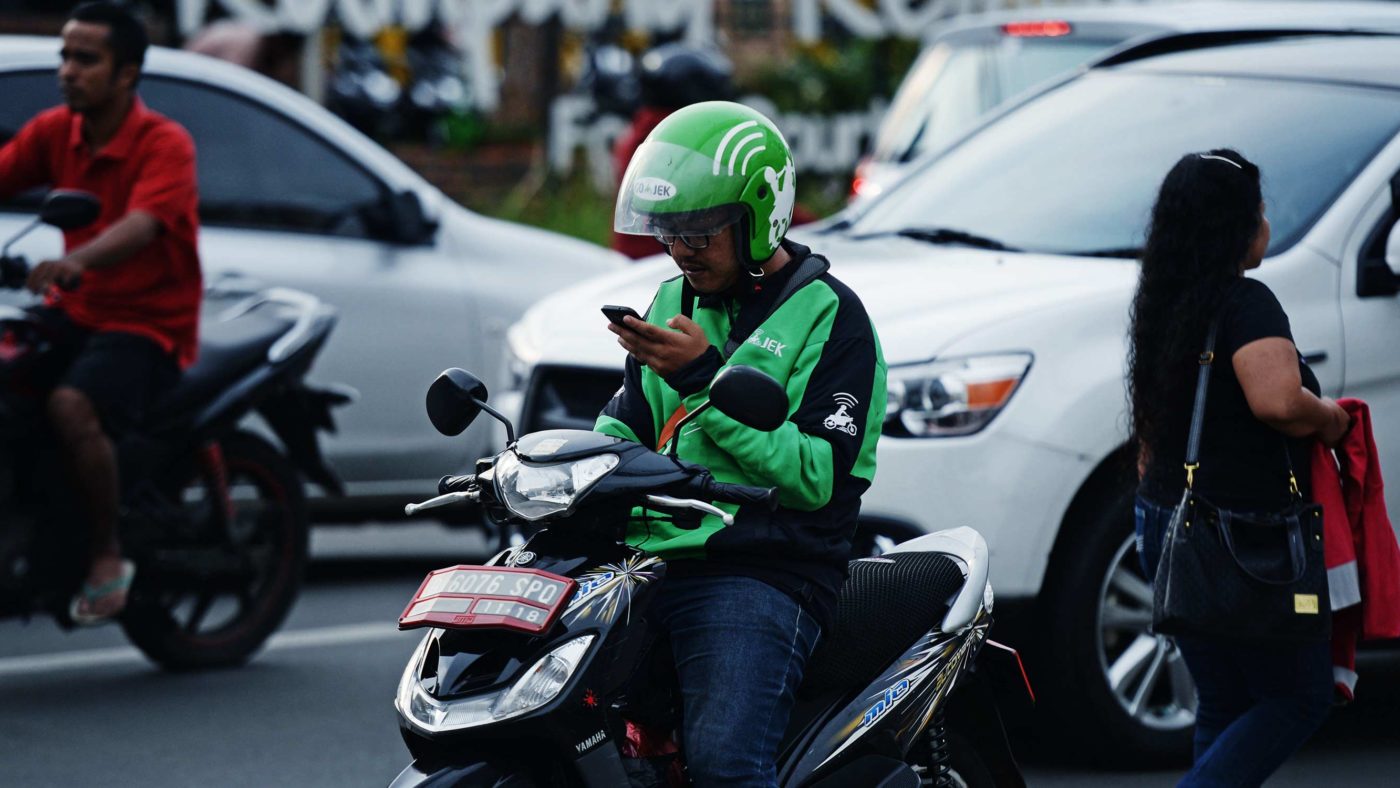When people think of the sharing economy, they probably think of Uber and AirBnB. These companies have quickly become household names, setting new standards of consumer satisfaction by reducing transaction costs and allowing service providers to connect directly with customers.
Tourists are now able to find all sorts of affordable accommodation, whilst home owners make extra cash while they’re away. And with the rise of ridesharing, the once practice of standing on a street corner to hail a taxi has become a topic of ridicule.
In Indonesia, however, the sharing economy is having a far greater impact, as a group a home-grown tech startups are helping to transform society.
The largest of these tech firms is GO-JEK.
Founded in 2010 as a business that connected motorbike transport drivers with potential customers, GO-JEK was re-launched as a tech firm in January 2015. Their initial mobile app provided an Uber-like ridesharing service but for motorbikes and scooters rather than cars — a significant advantage given the chaotic traffic in the country’s capital, Jakarta.
GO-JEK is now a direct competitor to Uber — with both companies offering car and motorbike ridesharing services. The company claims to have over 200,000 drivers in its networks. But it has also expanded beyond the transportation sector, to include an online payment service, on-demand services for food deliver and grocery shopping, a courier service, on demand mechanics service, as well as an on-demand cleaning service, massage service, and beauty services (comprising makeup artists, hairstylists, etc.).
These provide the kind of consumer convenience that the sharing economy has become known for.
But in Indonesia, there is a far greater benefit for the service providers themselves. This is because it brings them out of the informal sector of the Indonesian economy, which mostly deals in cash.
Indonesian tech firms like GO-JEK actively train and educated their service providers in basic financial literacy.
According to Wisnu Nugrahadi, the Head of Operations at GO-LIFE (the division overseeing the on-demand cleaning, massage, and beauty services), teaching service providers the basics of banking and smart phones is an essential part of their training.
“Most [service providers] don’t have their own bank account, or even a smart phone,” Wisnu told CapX.
“It’s a challenge for us to teach them how to use their smart phone, how to deposit money in banks and how to transfer money.”
This basic financial literacy has a significant impact in people’s day-to-day lives. As the experience of Gunanto, a 25-year-old former janitor, shows. Speaking through a translator, Gunanto told CapX that he had become less dependent on monthly income since joining GO-CLEAN (GO-JEK’s on-demand cleaning service) 8 months ago. He had been able to build up savings and was now able to buy products once thought to be luxuries, such as a smart phones to replace his old black and white cell-phone.
And there are flow-on effects as well, as GO-JEK’s service providers take their newly acquired knowledge back to their families and communities.
The impact of this financial literacy cannot be overstated. The so-called informal sector currently accounts for approximately 60 percent of the Indonesian economy, and it absorbs 80 percent of the Indonesian workforce. Giving these people access to modern banking and credit is a crucial step towards modernizing the Indonesian economy.
But the benefits aren’t just financial. As Wisnu states: “When we ask the talent why they are doing this, most of it is because of their children and their future. That’s the main reason why. The income is not that significant.”
This focus on the future was reiterated by Nurida, a 42-year-old service provider with GO-CLEAN.
Speaking through a translator, Nurida told CapX that the flexible work hours had enabled her to free herself from debt, whilst allowing her to spend more time taking care of her kids. Her son is now attending college to study graphic design.
Although not without tradeoffs, the sharing economy provides those who work in it with flexible ways to earn money, whether it be a little extra cash or their primary source of income. But in Indonesia, it’s also playing a crucial role in modernizing the economy, helping hundreds of thousands of people access modern financial systems. The potential benefits for Indonesian society are enormous.


